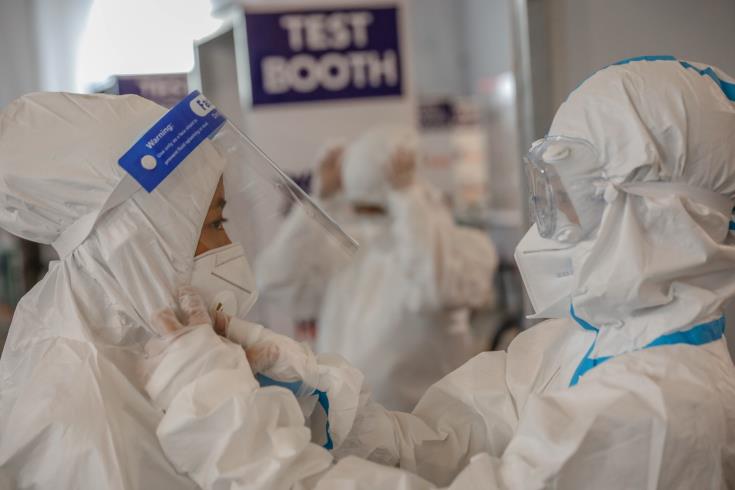Almost two weeks since Cyprus started exiting lockdown and COVID-19 cases are still kept to a minimum with only three cases reported on Friday.
The three new cases – from two the previous day – have taken the total for Cyprus to 910 since the outbreak began on March 9 (including 12 in the British Bases).
Daily cases have remained stable in single-digit figures for more than two weeks, with Friday’s data proving that Cyprus has kept a lid on the virus spreading.
The three new cases were identified after 1,794 tests were carried out.
Two cases were identified after 279 tests conducted at state hospital labs, while the other one was among 716 tests performed on people employed in the retail and construction sectors, who returned to work on 4 May when the first stage of relaxation was introduced.
Health Ministry experts presenting Friday’s data were pleased to report the number of cases is within the expected range.
Member of the Epidemiological Monitoring Unit and virologist Dr Leontios Kostrikis said that the data proved that people had adhered to decrees and guidelines issued.
He said “the team would like to thank everyone for their effort in this struggle. We urge you to keep up the good fight”.
On Friday, just five people were inpatients at Famagusta General, which operates as the COVID-19 reference hospital. Their condition is described as stable.
Three patients are breathing with the help of a ventilator, all at Nicosia General Hospital ICU.
The condition of all patients in the ICUs is described as “critical but stable.”
Dr Marios Loizou of the Cyprus State Health Services Organisation said that on Friday the United Nations had issued a warning that action needs to be taken to address the rising cases of mental health problems such as depression and stress.
To address rising cases of depression and stress in Cyprus, Dr Loizou said that the healthcare services have launched two helplines for people who feel they might need support during or after the lockdown.
“Frontline health workers, women, children, the elderly and people with pre-existing mental health problems belong to high-risk groups…there has been an increase in alcohol consumption, which is also a concern,” said Dr Loizou quoting the UN’s statement.
Globally, the number of coronavirus cases has surpassed 4.5 million and deaths have reached 305,000, while 1.72 million patients have recovered.










